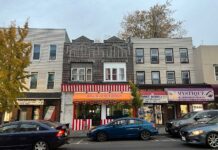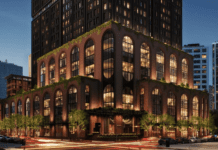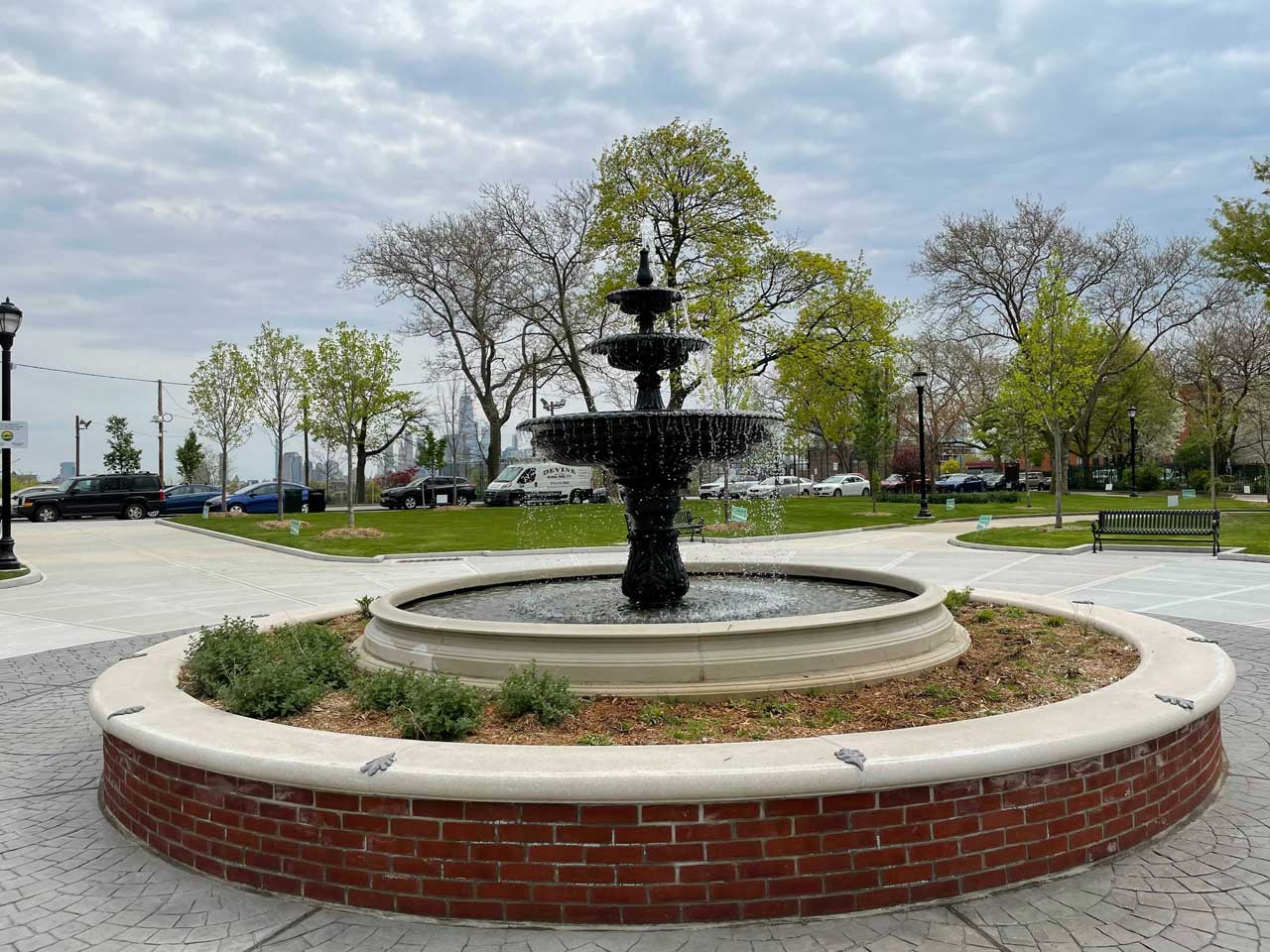
The Heights has spent the last few years becoming one of Jersey City’s hottest neighborhoods and officials recently celebrated both the conclusion of a greenery revitalization and the beginning of another.
Over the weekend, dignitaries held a ribbon cutting to unveil the revamped Riverview-Fisk Park. Jersey City’s council approved a $2 million contract to overhaul the space in January last year and the work kicked off two months later.
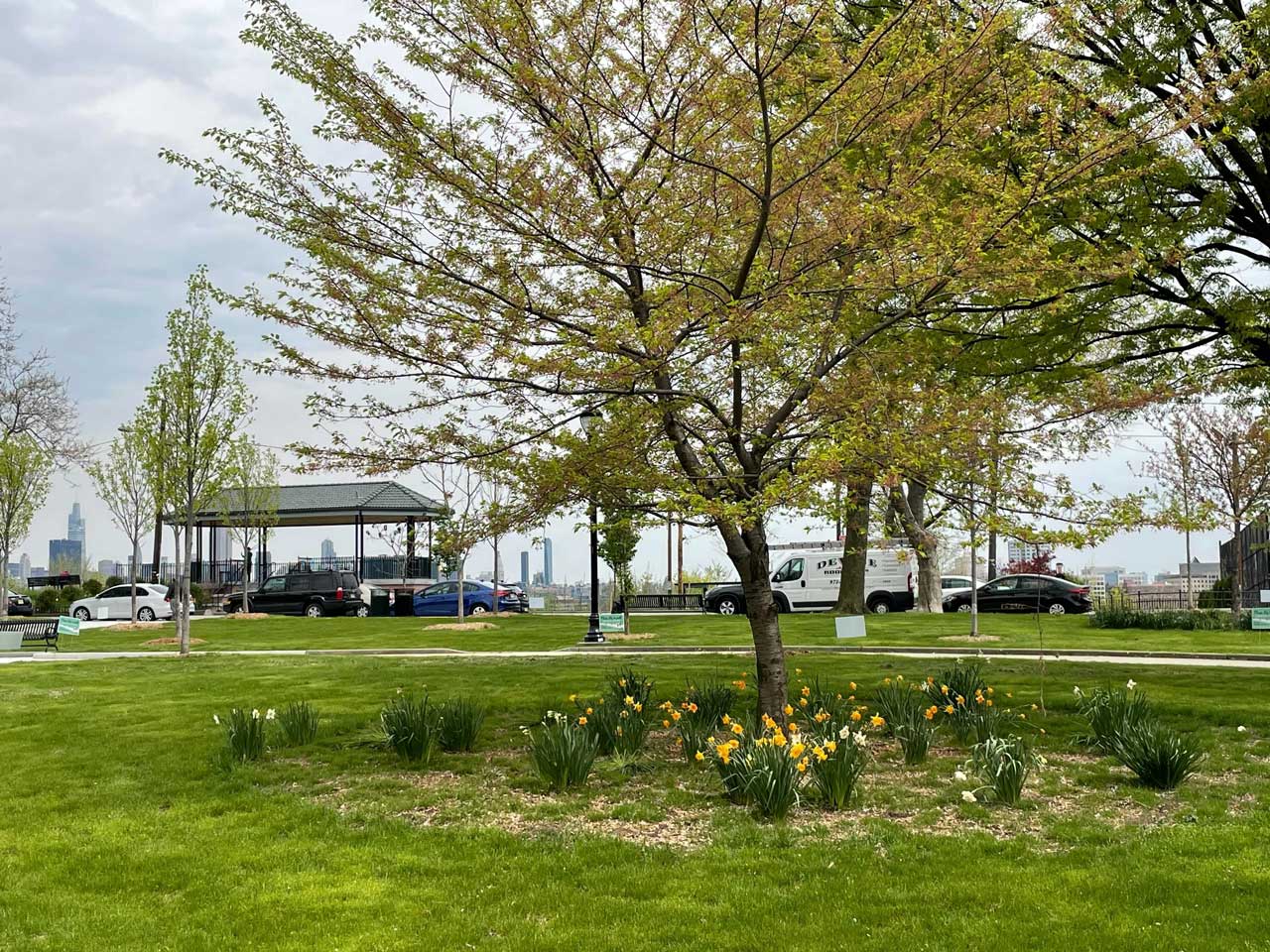
Despite the COVID-19 pandemic that shortly followed the groundbreaking, the renovation finished only two months behind schedule. The biggest additions to the park are a centrally located ornamental fountain and a new spray pad that was installed near the existing playground.
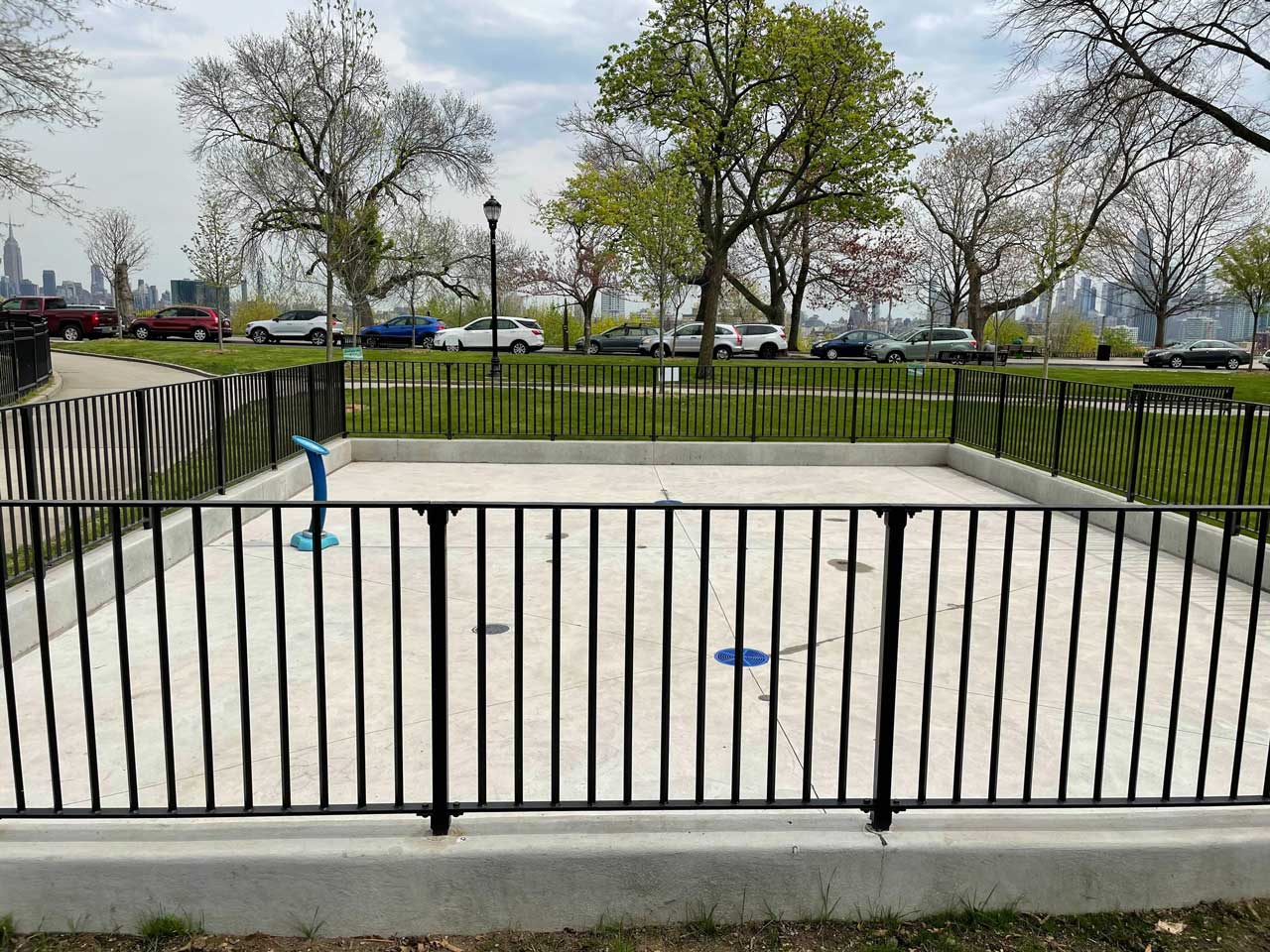
Several monuments in the park were restored during the project including a memorial to Henry Hudson that dates to 1917. A long-neglected Bocce court near the cliffside was completely reconstructed and includes a prefabricated shade structure, while new furnishings, decorative iron fencing, gates, a hydration station, and 89 trees were installed throughout the space.
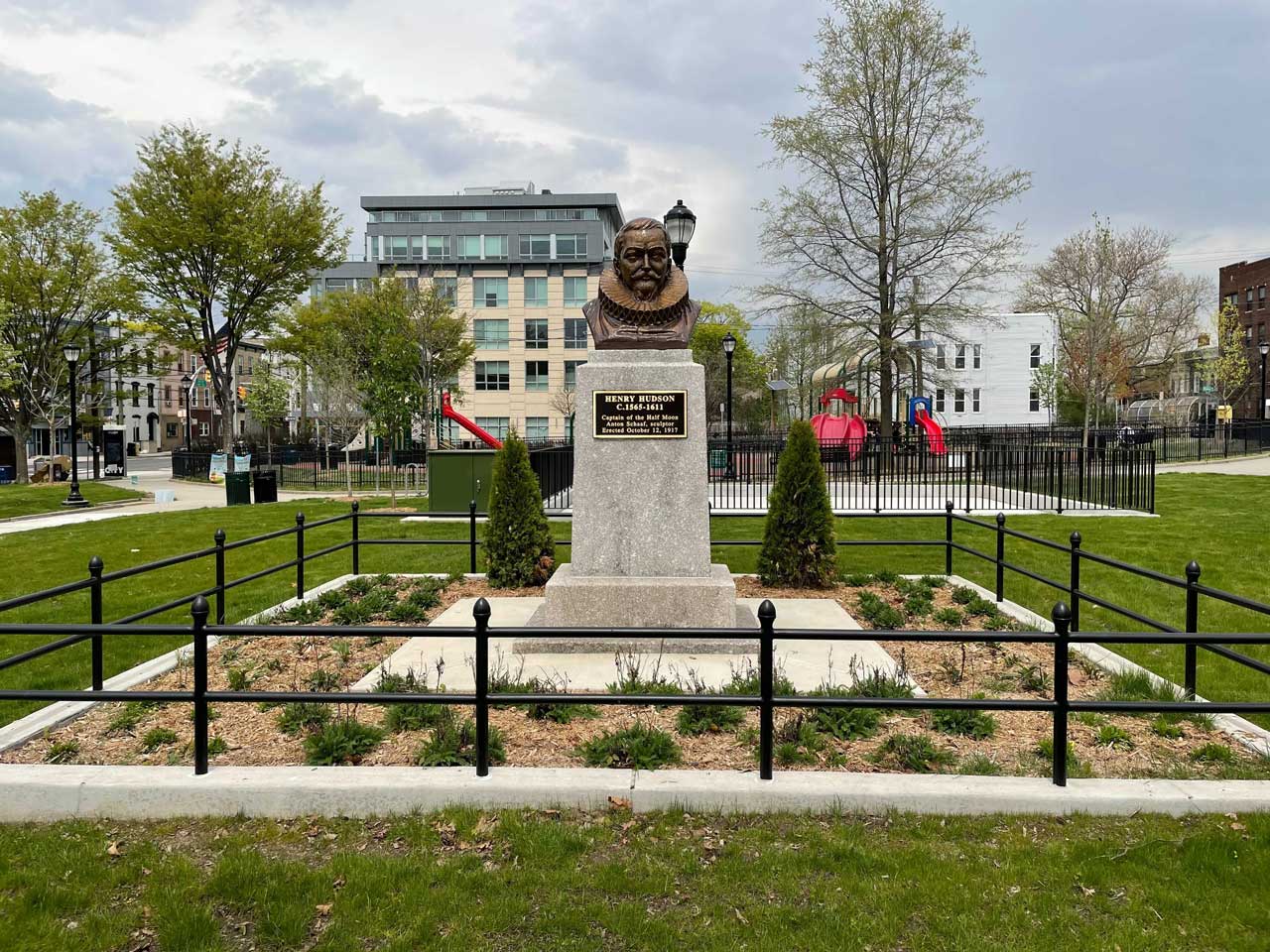
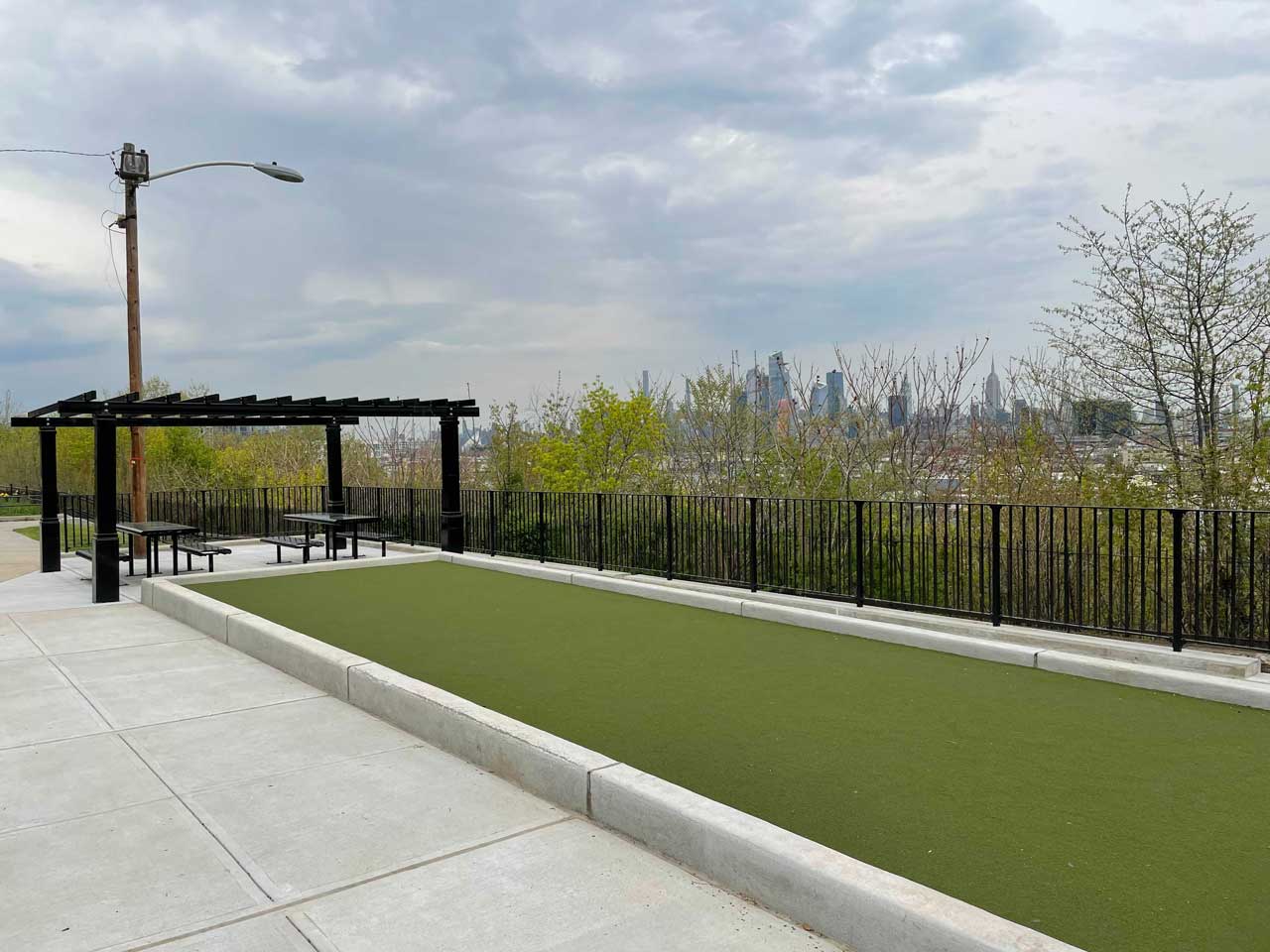
Some less obvious work was performed underneath the park consisting of new foundations, conduits, water lines, drainage lines, and site grading. The park itself is well over a century old and was built on land that was gifted to Jersey City by Aaron Ogden, who served as both a United States senator and the governor of New Jersey during the early 1800s.
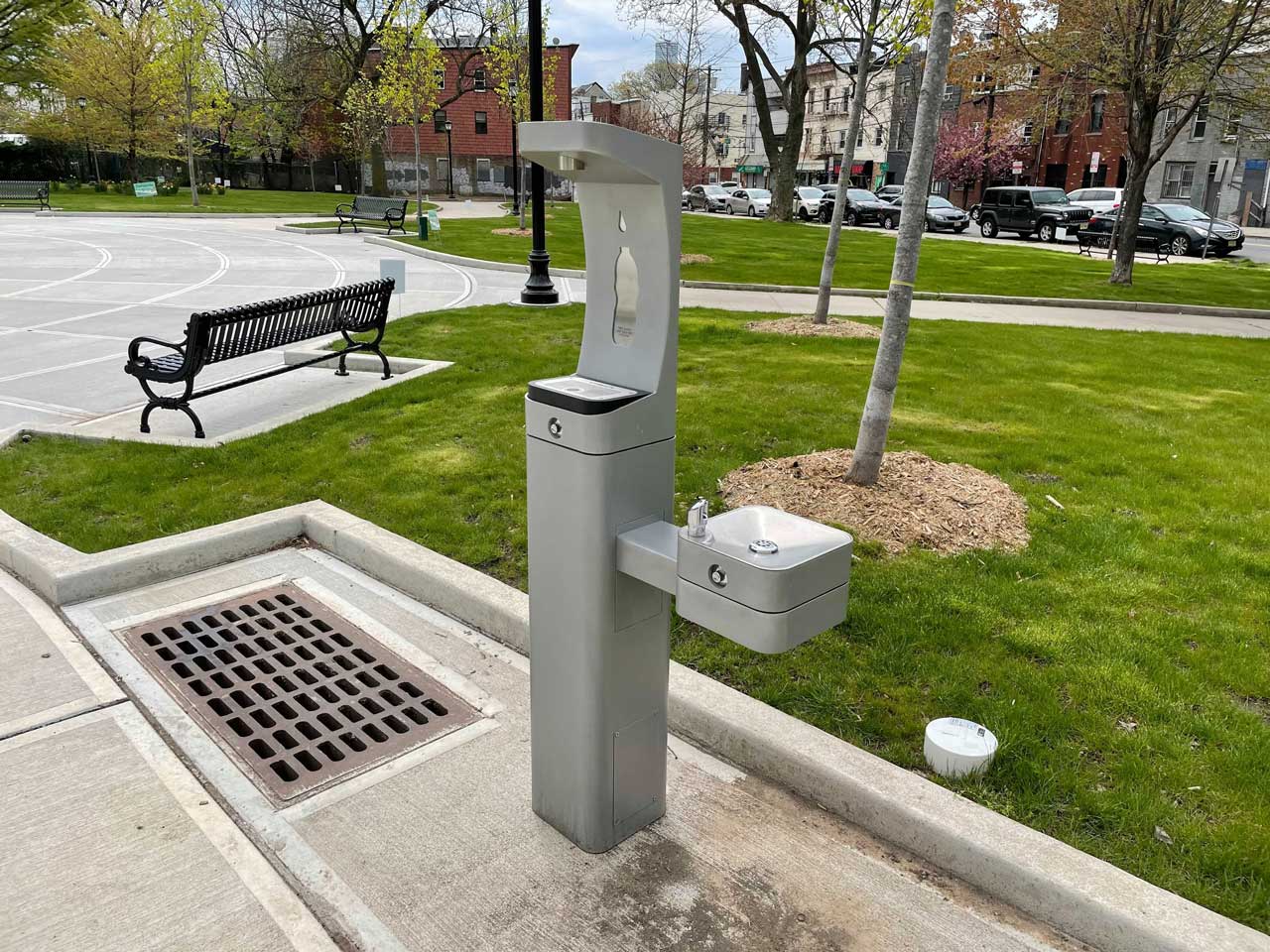
“Especially in times like these with the pandemic over the last year, we realize now more than ever how important parks and open space is for a city,” Mayor Steve Fulop said during the ceremony. “This is why we continue to invest in improvements to parks citywide.”
Just a bit west of Riverview Park, officials also held a groundbreaking on a project that will restore Reservoir #3. Located next to Pershing Field between Reservoir and Jefferson avenues, the 14-acre facility was completed in 1874 to provide drinking water for city residents and is listed on the National Register of Historic Places.
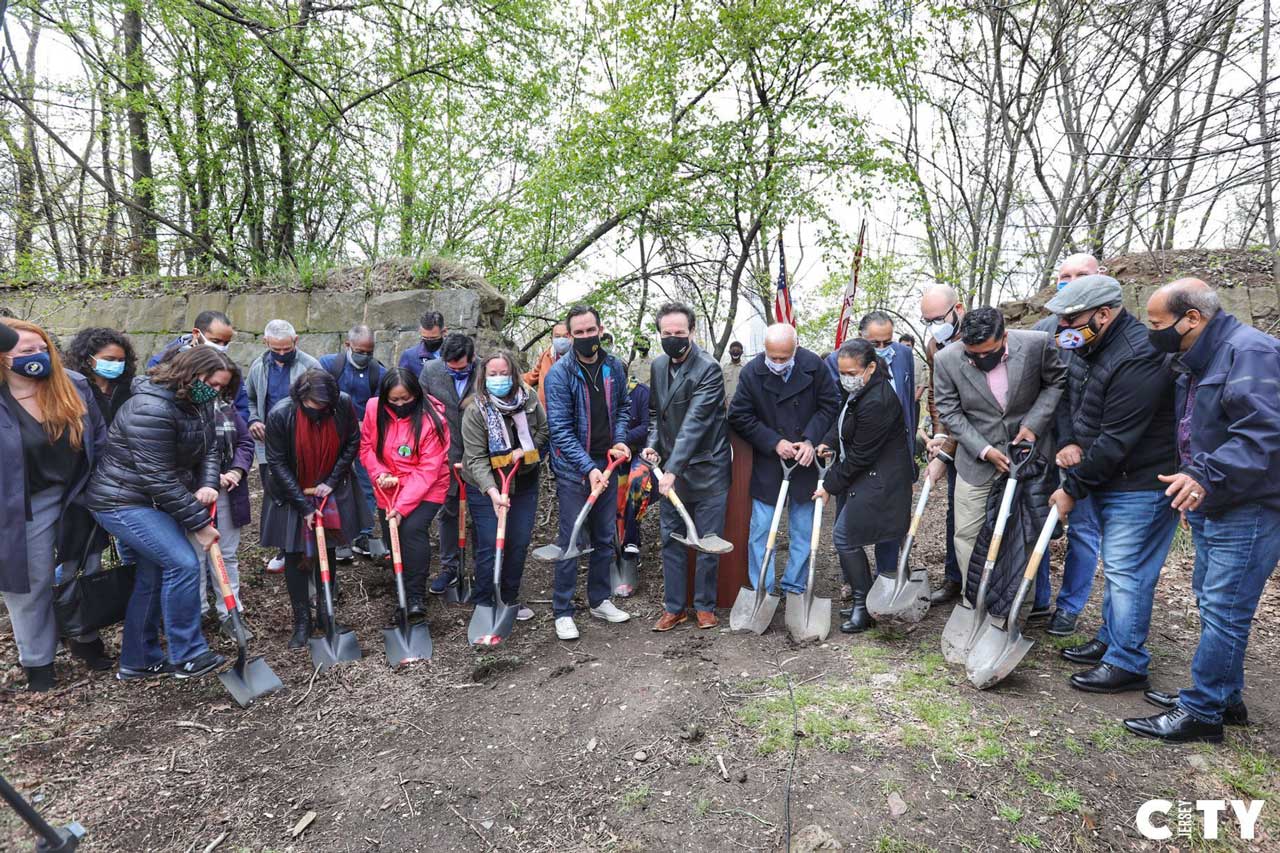
We were the first news outlet to report on the formal restoration plans last year, which weren’t without controversy. A spat broke out between officials and the Jersey City Reservoir Preservation Alliance over the changes, which the nonprofit referred to as “ill-conceived” in a Facebook post as recently as last month.
The alliance even held a meeting on March 25 outlining their objections and alternatives to the proposal but have since softened their stance, with some members attending the groundbreaking. The nonprofit says the city agreed to several changes that will protect trees and vegetation at the site that include the use of traditional lampposts instead of bollard lights.
“We look forward to continuing to work with the City to ensure the community is a major part of the conversation about finally opening this urban oasis and national landmark,” the group said.
The first phase of the work calls for the stabilization and preservation of the original Romanesque pump houses. An existing dirt path around the reservoir will be expanded from 18 inches to 48 inches wide throughout the length of the trail, which will significantly expand public access for those with limited mobility and families with strollers.
Later portions of the construction call for a terraced wetland garden near the northwest corner of the space, which is slated to include areas for fishing, water access, and a kayak launch ramp. Documentation released by Jersey City additionally calls for the construction of a proper boathouse and restroom along with the restoration of the 20-foot-high Egyptian Revival walls that surround the reservoir.
The Hudson County Open Space Trust is contributing $1 million towards the project, while the New Jersey Historic Trust is chipping in $750,000. Over $884,000 from the state’s Green Acres program is being put towards trail development and Jersey City’s Open Space Trust will be adding $400,000 to the endeavor. Jersey City will be matching every dollar obtained through the grants, which brings the total investment to $6 million.
The work will necessitate the Reservoir’s closure during the upcoming summer months, but residents can look forward to visiting the improved space in 2022.
